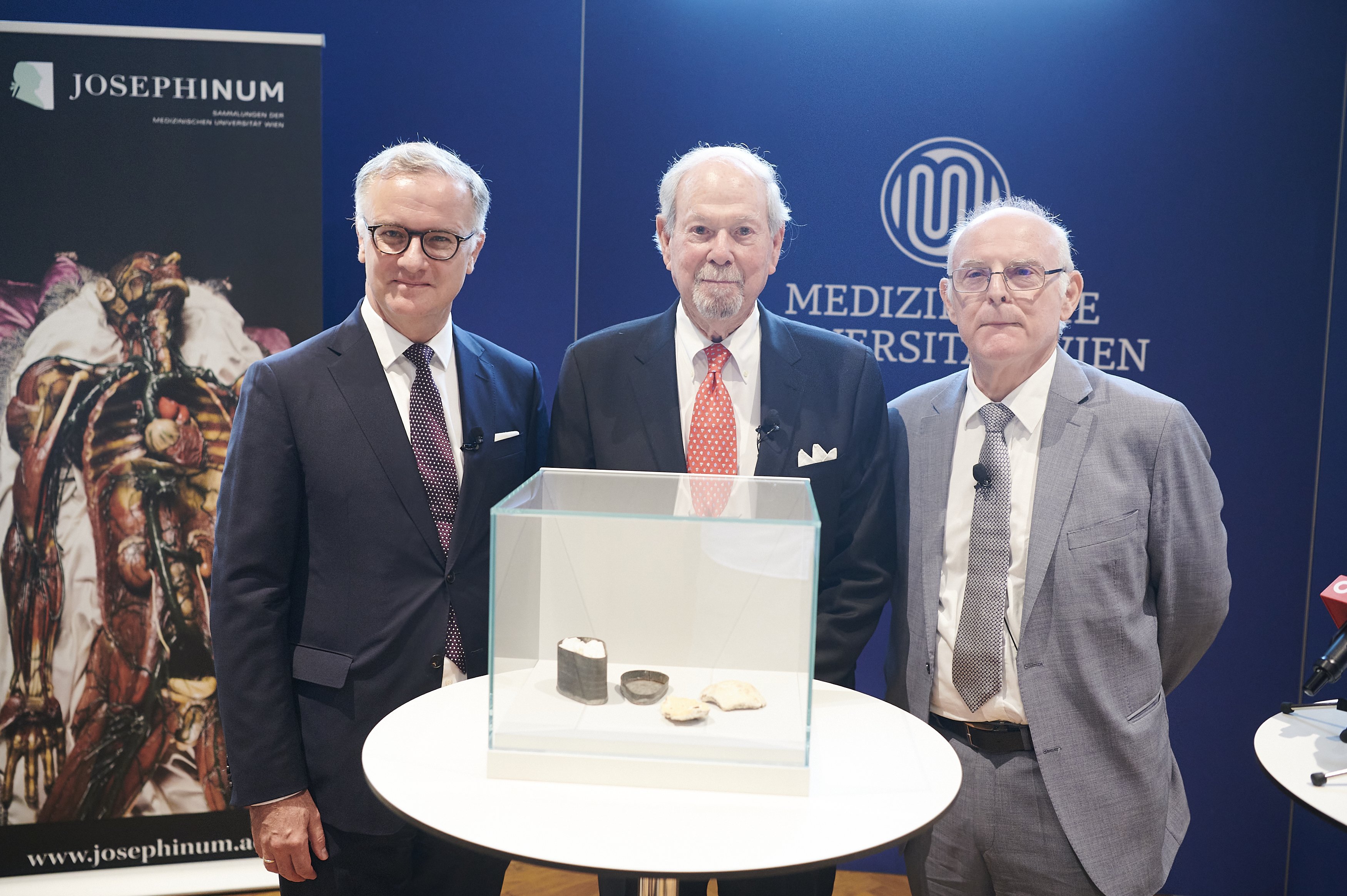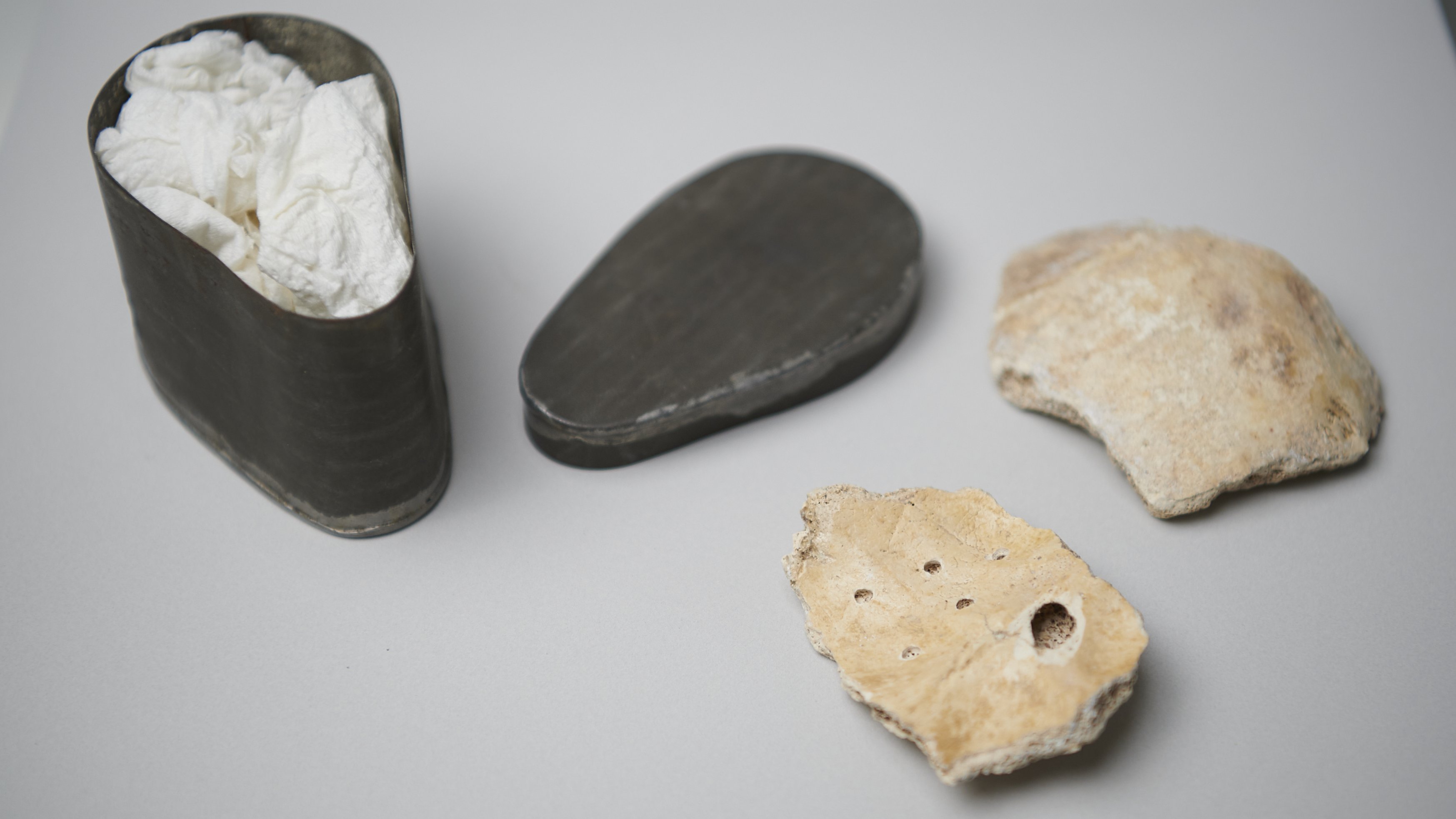
(Vienna, 20 July 2023) The Medical University of Vienna has received skull fragments attributed to the composer Ludwig van Beethoven as a donation. The bone fragments, known as Seligmann fragments, will now be added to the Josephinum's rich collections.
The relics were donated to MedUni Vienna by Paul Kaufmann during an event at the Josephinum. Paul Kaufmann had once received the fragments from the estate of his mother, who in turn had received them from the estate of her great-uncle Franz Romeo Seligmann. Franz Romeo Seligmann (1808-1892), Viennese physician, medical historian and anthropologist, had received the bone fragments in 1863 in Vienna in the course of a reburial of Beethoven's bones for study purposes.
Rector Markus Müller thanked for the donation: "We gratefully accept these fragments and will store them responsibly; our collections at the Josephinum are the right place for this." For him, in addition to historical interest, the ethically responsible handling of human remains is paramount. "It's about finding the right balance between comprehensible public interest and respect for a deceased person.The Josephinum is also the appropriate place for the acquisition of the fragments, since Beethoven's physician, Johann Adam Schmidt, was also a professor at the Josephinum and Beethoven himself, during his lifetime, wished that his illness be studied and researched after his death."
"I feel very privileged to be able to return my inherited Beethoven skull fragments to where they belong," said Paul Kaufmann. "Not only will they come 'home,' to where Beethoven now rests forever, but also to the Medical University of Vienna, which will have them available for research. I am grateful that the University has accepted my donation for the benefit of the people of Vienna, a city I love dearly for its beauty and rich history, and which is also the birthplace of my mother and her family."
Possible further investigation for authenticity
Forensic pathologist Christian Reiter has examined the suspected Beethoven fragments in the past and believes the provenance is credible. "With further investigations, for example based on DNA, we will get closer to the question of whether it really is Ludwig van Beethoven. In any case, we are very grateful to Mr. Kaufmann for bringing these witnesses of the past back to Vienna."
Josephinum houses the collections of MedUni Vienna
The Josephinum at Währinger Straße 25 in Vienna's 9th district was founded in 1785 by Emperor Joseph II as a medical-surgical military academy and is an important testimony to the Enlightenment in Austria as well as the most important example of classicist architecture. It is the historic gateway to the Medical University of Vienna and houses the collections on the history of medicine, including the unique anatomical wax models from Florence, impressive instruments, books, archives, manuscripts and bequests. It is also today an important place for exchange, teaching and research in the field of history and ethics in medicine.
Publications:
• On the authenticity of Beethoven’s skull fragments from the estate of Prof. Dr. Romeo Seligmann; Christian Reiter; Wiener Medizinische Wochenschrift 2022
• The History of Beethoven’s Skull Fragments; William Meredith; The Beethoven Journal (Volume 20, Numbers 1 &2)

After activation, data will be sent to YouTube. Further information here: Data protection